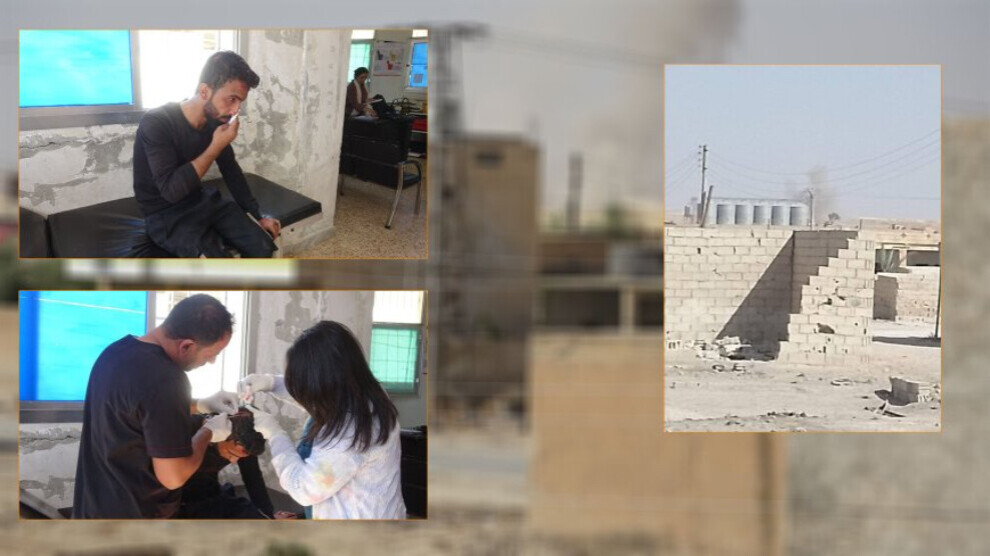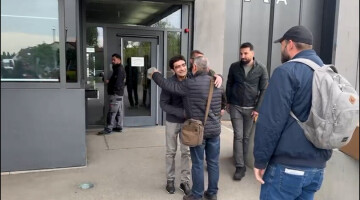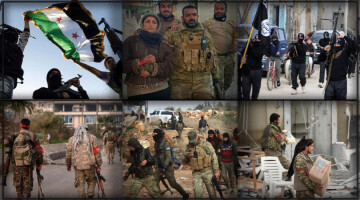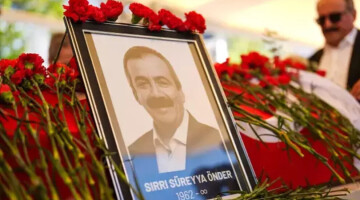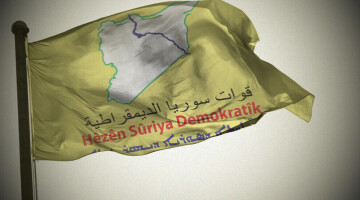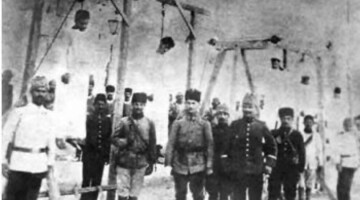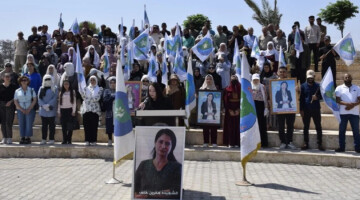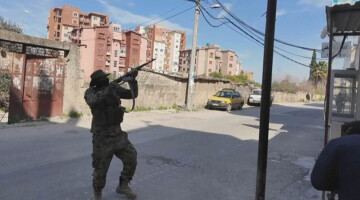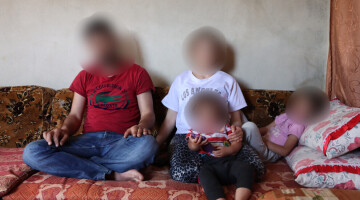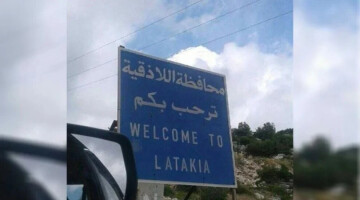The invading Turkish army launched a new wave of attacks in the district of Ain Issa on Wednesday.
According to reports from the ground, the attacks are directed against neighborhoods to the west of Ain Issa, the village of Mişêrfê and the grain silos to the north of the district.
The ongoing bombardment caused injuries to a 26-year-old local named Beşar Ehmed.
Ain Issa is located south of the Turkish occupation zone in northern Syria and is of strategic importance as a link between the self-governing Euphrates regions with Kobanê in its center and Jazira. Since 2019, the city has been in the crosshairs of Turkey and its Islamist proxy forces as part of a war of attrition, with phases of high intensity alternating with phases of low intensity. Dozens of villages in the region have already been destroyed and depopulated by Turkish military violence. A Turkish air offensive last November reduced large parts of the infrastructure to rubble and ash.
One of the areas occupied by Turkey in northern Syria is the region of Girê Spî. The formerly multicultural, self-governing region was occupied by Turkey in October 2019 and has been controlled by the Turkish intelligence service and jihadist mercenaries since. According to the Girê Spî Cantol Council, more than 100,000 people had to flee the region after the Turkish invasion. People loyal to the Turkish regime are resettled in their place as the Turkish state is pursuing an intensive settlement policy, systematically expelling the Kurdish population from the occupied areas.
Earlier this month, Turkey launched a so-called "air-ground offensive" against north-eastern Syrian autonomous territory, justifying the aggression with an attack by the Kurdistan Workers' Party (PKK) in Ankara on 1 October, when two PKK guerrillas carried out a sacrificial action in front of the Turkish Interior Ministry in the highly secured government quarter.
The Turkish air terror, which Ankara justifies with the right to self-defence, specifically targeted the vital infrastructure of the civilian population of northern and eastern Syria. More than two million people have since been cut off from basic services, and the energy infrastructure of Hesekê, Qamişlo and Amûdê has been almost completely destroyed.
Attacks on the civilian population or civilian infrastructure constitute war crimes. The international community ignores this open breach of international law and lets Ankara have its way in its war against the Kurds without consequence. Not only in Syria, but also in Iraq, Turkey is given a permanent green light for war crimes.

